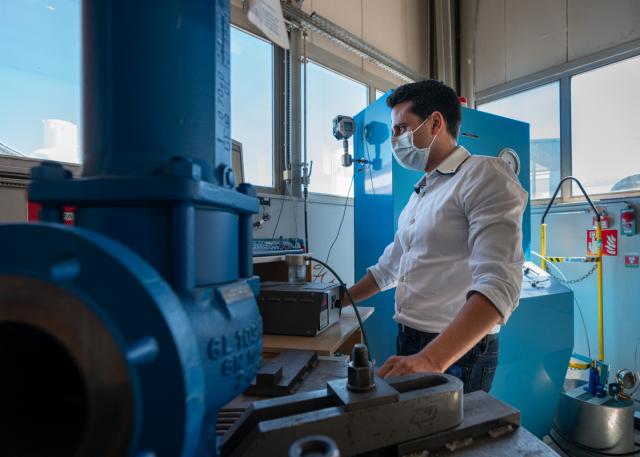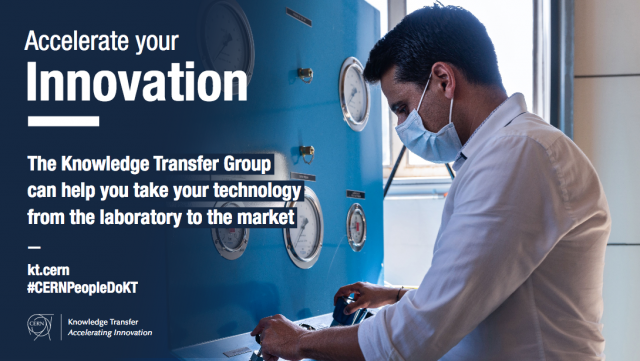From cryogenics to combatting COVID
Meet Andre Henriques, Technical Coordinator for the CERN Safety Rules in the Occupational Health & Safety and Environmental Protection unit (HSE), in this issue of our Knowledge Transfer spotlight series

Andre Henriques, leader of the Kryolize project (Image: CERN)
As an intergovernmental organisation, CERN establishes its own safety rules to function properly, in line with best practices and regulations in the Host States. After building his expertise for nine years within HSE, Andre Henriques currently contributes to shaping the technical aspects of CERN’s Safety Rules.
In addition to drafting safety measures at CERN, Andre also leads the Kryolize Project. This initiative aims to harmonise the approach to the sizing of safety valves for cryogenics applications at CERN via software developed with support from the Knowledge Transfer (KT) fund. The software goes hand in hand with experiments and measurements to improve the state of the art within cryogenics safety through an R&D collaboration with the Karlsruhe Institute of Technology. “The interaction with KT was great. They helped us secure funding for the project, enabling us to get to the next stage,” explains Andre.
Although Kryolize was initially developed for CERN, word spread across the community and the software garnered interest from other institutes. Andre worked closely with KT to publicise the technology and establish collaborations. Legal advisors helped set up 11 licence agreements with seven academic and four commercial entities. To further improve the design parameters of safety devices, phase two of the Kryolize Project will start in 2021.
As an HSE expert, Andre’s knowledge transfer activities extend beyond cryogenics software. He has also been involved in CERN’s efforts against COVID-19 through the “Help to society” activities. As the HSE representative within the CERN against COVID task force, Andre contributed to initiatives such as the “High-Energy Ventilator” (HEV), a ventilator developed with CERN equipment and knowledge intended for hospitals around the world. Face shields and masks were also donated to local communities and further knowledge transfer is currently planned for some of the designs through CERN’s Open Hardware Licence.
Find out more about how to get involved in CERN’s Knowledge Transfer activities here.

